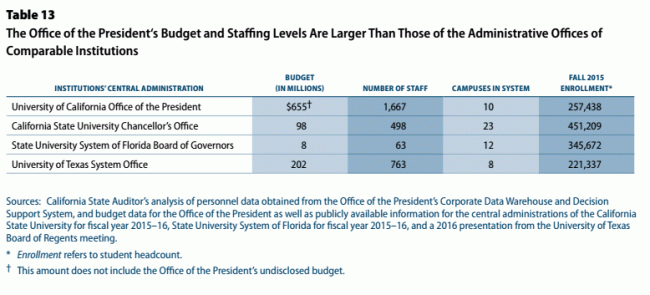Trump's tax plan makes little sense to me, and much of what I have seen written about it today is so full of misunderstandings about taxes and small businesses, I thought I would try to supply a bit of context for my contention that the plan makes no sense. As a caveat, Trump is seldom careful when he chooses words, so it could well be that I am working off of a media misinterpretation of his proposal.
I own an S-Corporation, which is the source of nearly all my personal income. In an S-Corporation, there is no corporate income tax per se. The corporation fills out an (extensive) set of tax forms, but the corporation does not write a check based on the corporate return. Instead, whatever amount is on the bottom line as taxable income in the corporate return passes through to my personal income tax return, where it is added to any other income I have (e.g. I pay myself a salary from the company, I get some interest income, etc) and I am taxed on that total based on my personal income tax rate.
For an individual owner, this structure makes a lot of sense, and this can best be understood by looking at the alternative, which is a traditional C-corporation. In a traditional C corporation, the corporation has a tax return just as in the S corp but, and this is a big difference, the corporation actually pays taxes based on this return on a corporate tax schedule. But the income is still sitting in the corporation. If the individual who owns the corporation wants this money, and presumably she does as why else be in business, then the corporation must dividend this money to the owner. The dividend triggers a second taxable event -- that dividend of the after-tax profits of the C corporation is then taxed again in the individual's tax return. I read today in the Wall Street Journal that "the appeal of becoming a pass-through business jumped after a 1986 U.S. tax overhaul set the top rate for individuals lower than the top rate for corporations." I don't think this is at all true -- the appeal was never one of differential rates, because to get income in an owner's pocket always has required it be taxed at individual rates. The appeal of the S corp is that the income does not need to be taxed a second time, at the corporation level.
In being the owner-operator of a C corp, one has to constantly worry about the double taxation problem. A popular solution is for the owner to simply pay himself the entire expected income of the corporation as a salary, this effectively eliminates the corporate level tax as there is no income left to tax, and so all the income is taxed on the individual's return as salary. Another popular dodge has been to lend rather than dividend the corporate income to the owners. This eliminates it being taxable on the individual return at the time the income is passed over, but this merely defers individual taxes until the loan is forgiven or until the company is sold or liquidated and the loan netted out.
S-corp owners like myself don't have to worry about all this mess -- the decision as to how much I pay myself in salary vs. how much I get paid in dividends is largely irrelevant to my taxes. If the company has income, before owner's salary, of $100,000 then my taxes are essentially the same whether I take $95,000 in salary or $5,000 in salary -- all $100,000 is going to get taxed at the individual rate on my 1040 whether I call it salary or corporate income -- this is true because on the income statement, the owner's salary is a deduction from income, so income goes up by the same amount that the owner's salary goes down. (Note that this is not exactly correct -- there is a small difference in that a higher salary increases payroll taxes somewhat that are not incurred on dividends).
I can't totally figure out how the Trump plan is intended to work, in part because one can argue that the S-corp corporate rate is already zero, so what does it mean to "lower" it to 15%? But my best guess is that he is saying that for pass-through entities like S-Corps, pass through income would only get taxed on the individual 1040 at a maximum of 15% while the rest would get taxed at the regular rate, whatever that is. There is a lot that is unclear - for example, for purposes of computing tax brackets for the rest of my income, does the pass-through income count? But assuming all this is sorted out, owners like myself would find ourselves with a strange set of new incentives. For example, depending on my tax bracket, my incentive would likely be to pay myself nothing in salary. Anything I pay myself in salary would be taxed at a higher rate, apparently, than anything that passes through as income.
My guess is that someone is confused here, either in communicating or putting together this plan (given Trump's haphazardness and lack of precision in communication, I would bet on the communication error). The WSJ described the pass-through rate being dropped to 15% in parallel with the C-C0rp max rate dropping to 15%, but those two rates are not at all parallel. The C-Corp rate is part of a double taxation chain. For that income to be useful to anyone, it has to pass through (either as dividends or higher equity prices) to individuals who pay individual taxes on the income as well. So in this plan as described, income in C-Corps that are then passed on to their owners as dividends are taxed at 15% + individual rate. But the income tax for S-Corp income passed to its owners about be 15% total.
Look, I will happily take this, but if this plan is really being described well, it is stupid and senseless. Someone doesn't really understand pass-through entities.
My alternative is still to get rid of the corporate tax code completely. Forget all the costs spent on corporate tax lawyers and all the distortive things corporations do to manage taxes. Tax everything once, when it reaches the 1040. Here is my plan I have proposed on a number of occasions (pass-throughs would be kept as-is, this is for C-Corps):
So here is my simply two-point plan
- Eliminate the corporate income tax. Entirely
- Tax dividends and capital gains as regular income on individual tax returns
Done. All corporate profits get taxed but only when they pass through to individuals as capital gains or dividends. I think this would actually raise more money but rates could be adjusted (or better yet deductions eliminated) if needs to keep it neutral.




